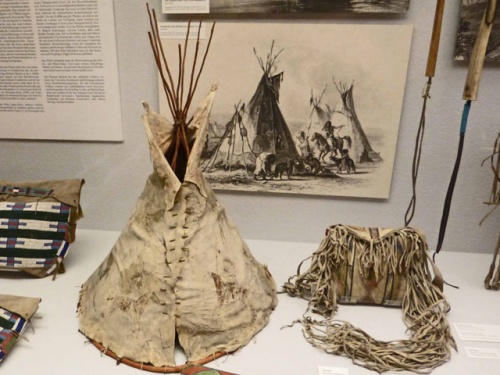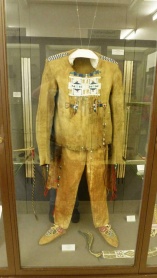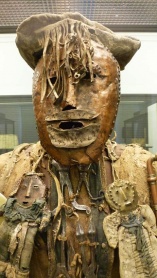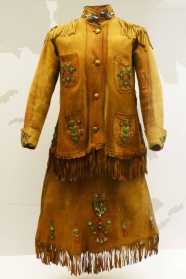Difference between revisions of "Cultures and leather"
| Line 33: | Line 33: | ||
''Reversed [[Sealskin leather|sealskin]] as buoy for the whalebone. - [[Leather clothing|Leather jacket]] the Eskimos from bird bellows ([[Leather museum|DLM - German Leather Museum in Offenbach]]).''<br></p> | ''Reversed [[Sealskin leather|sealskin]] as buoy for the whalebone. - [[Leather clothing|Leather jacket]] the Eskimos from bird bellows ([[Leather museum|DLM - German Leather Museum in Offenbach]]).''<br></p> | ||
<p> </p> | <p> </p> | ||
| − | |||
| − | |||
==The leather of the Indians of North America== | ==The leather of the Indians of North America== | ||
Revision as of 14:32, 15 September 2022
Leather has played an important role in the various cultural circles and epochs. Particularly during eras where suitable alternatives had yet to be developed. A life in the polar region was impossible without leather. But almost every culture has used, relied on and benefited from leather.
The leather of the Eskimos
Because of the inhospitable climatic conditions in the polar region, survival without leather was impossible. Words like "kayak", "parka" or "anorak" come from this culture. In the extreme cold, leather was extracted from local animals. Polar bears, whales, seals, walrus, sea otters, caribou, muskoches and fish. In the inland areas sheep, goats and deer were added.
Eskimos even covered their boats with leather (DLM - German Leather Museum in Offenbach).
Inuit in sealskin clothing. - Raincoats made of seal intestines skin (DLM - German Leather Museum in Offenbach).
Reversed sealskin as buoy for the whalebone. - Leather jacket the Eskimos from bird bellows (DLM - German Leather Museum in Offenbach).
The leather of the Indians of North America
For the Indians of North America, leather was a constant companion and a raw material for many applications.
Model of an Indian tent made of leather (DLM - German Leather Museum in Offenbach).
Leather clothing of the Indian primitive peoples.

















 a kotori web solution
a kotori web solution